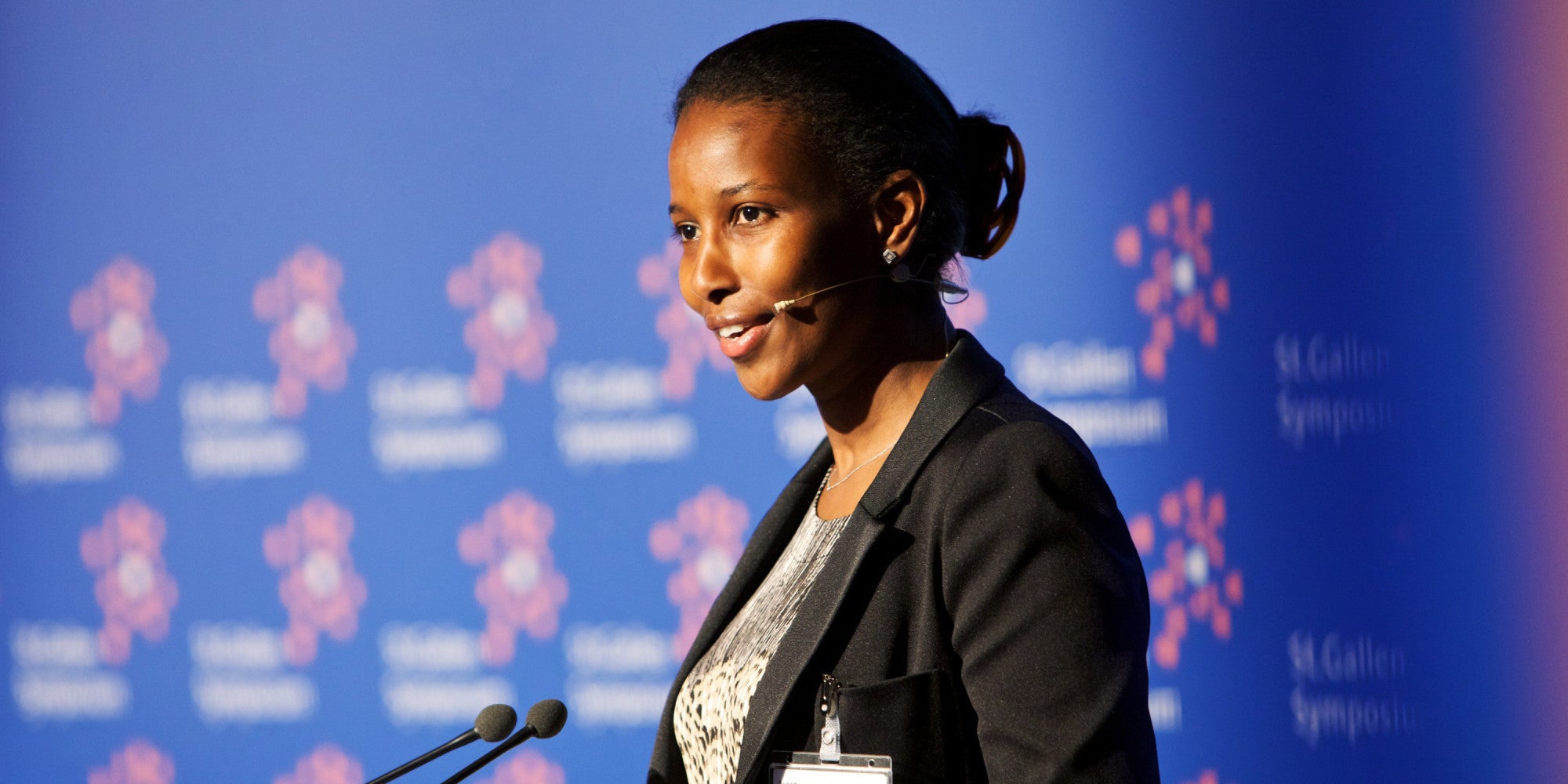
Ayaan Hirsi Ali, founder of AHA Foundation, speaks during the St. Gallen symposium in St. Gallen, Switzerland, on Thursday, May 12, 2011. UBS AG Chief Executive Officer Oswald Gruebel said stricter capital requirements for banks and fiscal austerity will hurt economic growth in developed economies in the next 10 years. Photographer: Gianluca Colla/Bloomberg via Getty Images
Ayaan Hirsi Ali’s Long History of Fabricating & Fear-mongering
In recent weeks, Ayaan Hirsi Ali has been making rounds on national media outlets, promoting her latest book, Heretic. Portrayed in many circles as a credible voice on Islam, she has made recent appearances on the Diane Rehm Show and at Washington, D.C.’s National Press Club, citing statistics and referencing her personal history in Somalia to call for “reform” of Islam.
In a March 26, 2015 piece for Alternet entitled, “Exposing Anti-Islam Author Ayaan Hirsi Ali’s Latest Deception,” Max Blumenthal describes how Ali has become a “darling of the American mainstream media,” all the while advancing prejudicial rhetoric and fabricated statistics. Unlike “anti-Muslim activists like Robert Spencer and Pamela Geller [who] have marginalized themselves on the fringes of the far-right,” he writes, Ali gets interviews with the New York Times Review of Books, Jon Stewart, and Anderson Cooper.
Hirsi Ali’s power to persuade lies in her dramatic personal story and the public persona she has constructed. She has marketed herself as an expert native informant who has emerged out of the dark heart of radical Islam and into the light of Western civilization. Her tale is an uplifting, comforting one that tells many Westerners what they want to hear about themselves and their perceived enemies. With anti-Muslim attitudes at their peak across Europe and the US, her sweeping critique of Islam as an endemically violent faith has enormous cachet. The only problem is that like her writings on Islam, much of what she has told the public about herself is questionable.
Blumenthal points out what many journalists and the public fail to realize: that Ali’s statistics about Muslims are often patently false, and that her backstory is more than questionable.
You can read more of Max Blumenthal’s piece at Alternet, where he debunks one of Ali’s made-up claims about violence committed by Muslims; outlines Ali’s contested personal history; and details the scandal that drove her from the Netherlands.

 Search
Search